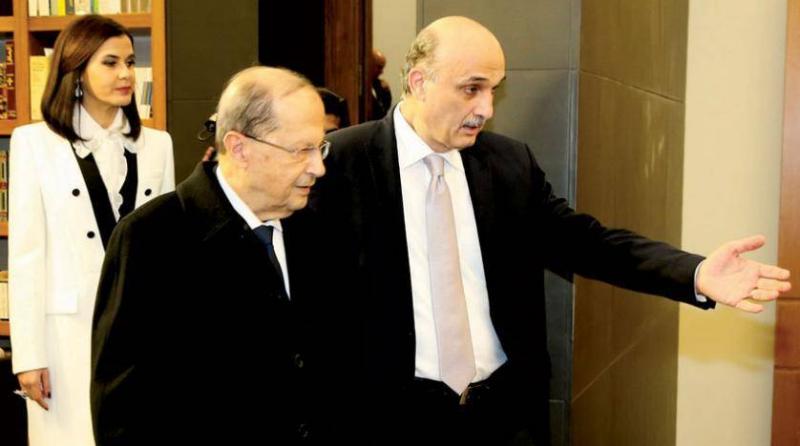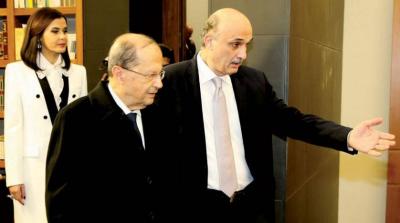At the beginning of 2016, the Maarab Agreement was born between the Lebanese Forces and the Free Patriotic Movement, based on the principle of "Beware of your brother," after months of negotiations led by MPs Melhem Riachi and Ibrahim Kanaan. This agreement aimed to close a painful chapter of the civil war between the two parties, alongside the tragedies experienced by Christians at that time. The importance of the effects of this agreement and its social reflections cannot be ignored, even though its political consequences came contrary to expectations and hopes. It seemed to serve merely as a bridge for General Michel Aoun to the Baabda Palace in October of the same year, along with the approval of the new electoral law based on proportional representation, which was considered a Christian demand for achieving rightful representation.
Once Aoun reached the presidency, the relationship between Maarab and the presidential palace deteriorated. The last visit by Dr. Samir Geagea to the palace was in September 2019, when he participated in the dialogue table called for by Aoun. The Lebanese Forces participated in the first two governments of the era but were the first to withdraw from Saad Hariri's second government following the October 17, 2019 uprising, igniting a fierce confrontation. The Forces and their supporters left a significant mark on the street protests and roadblocks in many areas, demanding Aoun's resignation and downfall, even using the streets, an advanced demand from a key Christian political group.
The six years of Aoun's presidency were almost devoid of a lack of "Forces" and "Aounist" polemics, flooding social media with debates and wars of tweets. Maarab directly accused "the Movement" ministers of a deal involving power ships, recording fiery stances about the "Movement's" management of the Ministry of Energy over a decade, repeatedly calling for this portfolio to be withdrawn and given to any political party or specialist since the "Movement" had failed in this task.
Not only in the electricity file; also regarding telecommunications, judicial independence, support files, and others, the MPs of the Forces were in a position of fierce attack. Dozens of press conferences were held, alongside legal complaints submitted to the judiciary. In a sarcastic but accurate comment reflecting the relationship's nature between the two sides, Geagea responded to a question from journalist Marcel Ghanem in the program "It's Time" on August 1, 2019, about why he hadn’t visited Baabda and spoken with Aoun, saying: "He always answers me: Go kiss Terez," clearly referring to Minister Gebran Bassil and his interference in every detail of governance. As a direct reaction, representatives of "the Movement" withdrew from the studio that day, registering their objection.
The events in Tayouneh on October 14, 2021, between the supporters of the Shiite duo and the Forces rekindled tensions with Mirna al-Shalouhi and the presidency. After nearly two years of personal absence since the last dialogue table, Aoun called Geagea following the incident, although what followed this call was a direct accusation against the Forces regarding the incident, stated explicitly by Bassil, interpreting the call at that time as an entrapment of Geagea rather than solidarity with him. The larger battle occurred in the 2022 elections, where the Forces mobilized completely across all fronts and districts, running in many areas on independent lists, resulting in an increase in the number of MPs, a fact that remained a subject of contention with "the Movement," which insisted it held the largest Christian bloc in Parliament.
The list of disputes and battles between "the Forces" and Aoun's presidency extends even to the last days of his term. The page of the Maarab Agreement has turned with no return, and any new president whom Geagea supports will be closely scrutinized to see if they have been touched by the curse of "Bosa Terez."




